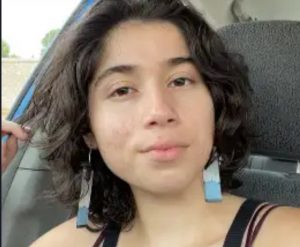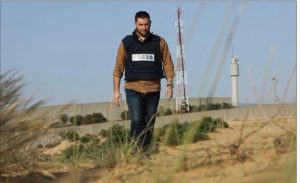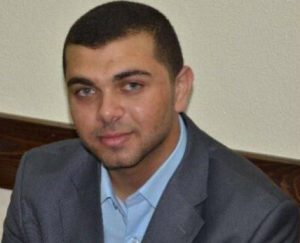Israeli jets kept up a barrage of air strikes against the Palestinian enclave of Gaza Monday evening, as a week of violence that has killed more than 200 people pushed world leaders to step up mediation.
Air strikes sent dust clouds billowing into the skyline, as the Hamas militant group that controls the besieged and densely populated coastal strip threatened more rocket strikes on Tel Aviv if bombing of residential areas does not stop.
In a call with Israeli Prime Minister Benjamin Netanyahu Monday night, US President Joe Biden said he backed a ceasefire, shortly after diplomats said Washington had blocked a third draft of a UN Security Council resolution calling for an end to the violence.
Also Read: Israel considering Gaza ceasefire amid growing international pressure: Report
Gaza resident Roba Abu al-Awf, 20, said she was bracing for a rough night.
“We have nothing to do but sit at home,” she said. “Death could come at any moment — the bombing is crazy and indiscriminate.”
Palestinian militants have for their part fired around 3,350 rockets toward Israel since the conflict escalated on May 10 in the heaviest exchange of fire in years, sparked by unrest in Israeli-annexed east Jerusalem.
The Qatari Red Crescent said an air strike damaged its offices in Gaza Monday, while the health ministry said one of its buildings and a clinic were also hit.
Israel’s army said Monday it had hit the homes of nine “high-ranking” Hamas commanders overnight, a day after bombing the house of Yahya Sinwar, head of the group’s political wing. It gave no details of any casualties.
Fighter jets also hit what the Israeli army calls the “Metro”, its term for Hamas’ underground tunnels, which Israel has previously acknowledged run in part through civilian areas.
The strikes come a day after 42 Palestinians in Gaza — including at least eight children and two doctors, according to the health ministry — were killed in the worst daily death toll in the enclave since the bombardments began.
Local authorities say a total of 212 Palestinians have been killed in Gaza, including at least 61 children, and more than 1,400 wounded since Israel launched its air campaign against Hamas in response to rocket fire.
Israel says 10 people, including one child, have been killed and more than 300 wounded by the rocket fire that has been the most intense to ever rain down on the Jewish state.
Israeli bombardment of Gaza has displaced 38,000 people and made 2,500 homeless, the United Nations says.
It has also battered crucial infrastructure, with the electricity authority Monday warning it only had enough fuel left to provide power for another two to three days.
On Saturday, Israel gave journalists from Al Jazeera and AP news agency an hour to evacuate their offices before launching air strikes, turning their tower block into a pile of smoking rubble.
Netanyahu on Sunday claimed the building also hosted a Palestinian “terrorist” intelligence office.
US Secretary of State Anthony Blinken said Monday he had requested “details” and a “justification” for the strike.
The violence between Hamas and Israel is the worst since 2014, when Israel launched a military operation on the Gaza Strip with the stated aim of ending rocket fire and destroying tunnels used for smuggling.
That war left 2,251 dead on the Palestinian side, mostly civilians, and 74 on the Israeli side, mostly soldiers.
UN Security Council talks that opened Sunday resulted in little progress, with Washington on Monday blocking for the third time a draft resolution calling for a halt to the violence.
The UNSC will hold a new emergency closed-door meeting on the crisis on Tuesday, the Norwegian diplomatic mission announced.
Biden’s administration says it is working behind the scenes, and that a Security Council statement could backfire.
But the White House said late Monday that “the president expressed his support for a ceasefire and discussed US engagement with Egypt and other partners towards that end” with Netanyahu.
Biden had so far resisted joining other world leaders and much of his own Democratic party in calling for an immediate ceasefire.
Biden’s national security advisor Jake Sullivan said he had spoken to his Israeli counterpart and the Egyptian government — a key intermediary — on Monday, saying that Washington was engaged in “quiet, intensive diplomacy”.
Germany’s Chancellor Angela Merkel voiced “solidarity” with Israel in her own call with Netanyahu on Monday, reaffirming the Jewish state’s “right to defend itself” against rocket attacks — a line likewise consistently taken by Washington.
But Turkey’s President Recep Tayyip Erdogan accused the US president of having “bloody hands” due to his support for Israel.
US envoy for Israeli and Palestinian affairs Hady Amr was in Ramallah on Monday and met with Palestinian Authority president Mahmud Abbas, who urged Washington to act against “Israel’s aggression”, the official Wafa news agency reported.
Israel is also trying to contain inter-communal violence between Jews and Arab-Israelis, as well as unrest in the occupied West Bank, where Palestinian authorities say Israeli forces have killed 20 Palestinians since May 10.
A 56-year-old Israeli man who was beaten by Arab suspects in the city of Lod last week died in hospital on Monday, police said.
Clashes broke out at Jerusalem’s Al-Aqsa mosque compound — one of Islam’s holiest sites — on May 7 after Israeli forces moved in on worshippers.
This followed a crackdown against protests over planned expulsions of Palestinians in the Sheikh Jarrah neighbourhood of Israeli-annexed east Jerusalem.
Protests have broken out around the world against the Israeli air campaign in Gaza, including in neighbouring Lebanon, from where rockets were also fired toward the Jewish state Monday night.
Also Read: Israel bombs key Hamas targets as UN Security Council to meet
The army said none of the six rockets launched from southern Lebanon — a bastion of Israel’s foe Hezbollah — reached Israeli territory and that it responded with artillery fire.






